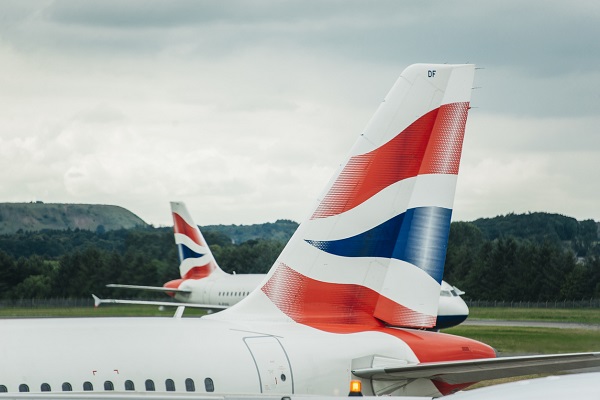ii view: IAG reports record quarter given post-pandemic travel boom
Shares for this major airline remain down around 65% over the last five years. Buy, sell, or hold?
27th October 2023 14:58
by Keith Bowman from interactive investor

Third-quarter results to 30 September
- Revenues up 18% year-over-year to €8.65 billion
- Operating profit up 39% to €1.75 billion euros
- Net debt down 23% to €8 billion
Guidance:
- Expects full-year capacity of around 96% of pre-Covid levels
- Fuel prices 73% of hedged for the fourth quarter
Chief executive Luis Gallego said:“This quarter represents a record third-quarter performance for IAG. This is allowing us to invest in the business and reduce a significant amount of our debt. During the third quarter we saw sustained strong demand across all our routes, in particular the North and South Atlantic and in all leisure destinations around Europe. We continue to develop our hubs of Barcelona, Dublin, London and Madrid, supported by our fleet deliveries and future orders.
“Our strong financial performance is enabling investment in our people and allowing us to further improve customer experience. At the same time, we will keep working towards our sustainability goals.”
- Invest with ii: Top UK Shares | How to Start Trading Stocks | Open a Trading Account
ii round-up:
Airline operator International Consolidated Airlines Group SA (LSE:IAG) today detailed record third-quarter results as it continued to benefit from the post-pandemic travel boom.
Profit for the British Airways owner climbed 39% to €1.75 billion beating City expectations nearer to €1.55 billion and helping net debt to reduce by close to a quarter to €8 billion. Capacity or passengers flown for the current full year is expected to come in at around 96% of that seen in the year prior to the pandemic, but with management offering near-term caution given the unfolding situation in the Middle East.
Shares for the FTSE 100 company drifted marginally lower in afternoon UK trading having come into this lates news up by around 15% year-to-date. That’s similar to budget airline easyJet (LSE:EZJ) and in contrast to a near 2% fall for the 100 index itself.
IAG operates more than 550 aircraft across brands including British Airways, Spanish airline Iberia, and Irish-based operator Aer Lingus.
Accompanying management outlook comments pointed to “good forward bookings” but with consideration given to “wider macroeconomic and geopolitical uncertainties that might affect the remainder of this year.”
Almost three-quarters of its fuel costs for the fourth quarter had been hedged with the total bill for the full year estimated to be around €7.6 billion.
ii view:
Founded in 2011 following a merger between British Airways and Iberia, IAG today competes against rivals such as Air France-KLM (EURONEXT:AF) and Deutsche Lufthansa AG (XETRA:LHA) and is a constituent of both the FTSE 100 and IBEX 35 indices. Along with its various airline brands including Vueling and Level, it also owns loyalty reward brand Avios. Passenger revenues account for the bulk of sales at 84%, followed by cargo revenues at 7% and other revenues from its loyalty and BA holidays businesses the balance.
For investors, wars in both Ukraine and the Middle East offer geopolitical uncertainties with relations between the West and China also more strained. Heightened borrowing costs could yet take their toll on consumer and corporate travel budgets. Pressure to reduce industry emissions under climate change concerns cannot be forgotten. Factors outside management’s control such as the weather can impact performance, while group net debt of €8 billion (£6.96 billion), although reduced, still stands about equal to IAG’s stock market value of £6.98 billion.
- Where to invest in Q4 2023? Four experts have their say
- Wild’s Winter Portfolios 2023-24: 10th anniversary edition
- Insider: trio splash £140,000 on shares
On the upside, a recovery in passenger demand after the Covid crisis is evident. A diversity of both brands and geographical regions exists, including market share strength between Europe and the US, and Europe and Latin America. A push towards more fuel-efficient and climate-friendly twin engine planes continues, while a focus on reducing net debt, which grew during the pandemic, is ongoing.
For now, and while the long list of headwinds which can hinder all airlines should never be forgotten, the worst crisis in the industry’s history continues to fade with long-term fans of this airline likely to stay patient.
Positives:
- Diversity of brands
- Some fuel price hedging
Negatives:
- Uncertain outlook
- Dividend payment remains suspended
The average rating of stock market analysts:
Buy
These articles are provided for information purposes only. Occasionally, an opinion about whether to buy or sell a specific investment may be provided by third parties. The content is not intended to be a personal recommendation to buy or sell any financial instrument or product, or to adopt any investment strategy as it is not provided based on an assessment of your investing knowledge and experience, your financial situation or your investment objectives. The value of your investments, and the income derived from them, may go down as well as up. You may not get back all the money that you invest. The investments referred to in this article may not be suitable for all investors, and if in doubt, an investor should seek advice from a qualified investment adviser.
Full performance can be found on the company or index summary page on the interactive investor website. Simply click on the company's or index name highlighted in the article.